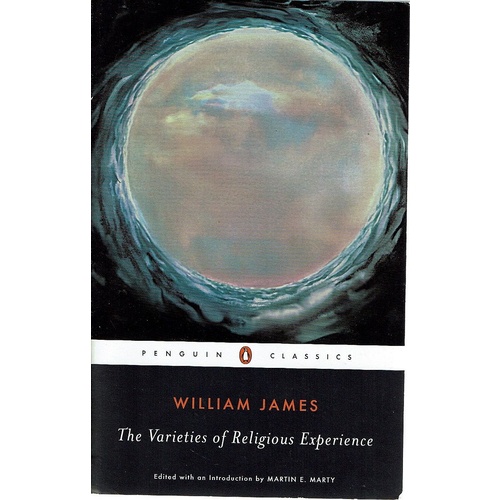
And yet, in the words of Psychology Today, it remains “the most notable of all books in the field of the psychology of religion and probably destined to be the most influential book written on religion in the 20th century.” One commentator has described it as “a classic that is too psychological to have shaped most religious inquiry and too religious to have influenced much psychological research”. Psychology aside, this is an odd book in many ways, especially for its unorthodox approach to the precepts of organised religion. His only concern about religion is what it tells us about 'what goes on in the single private man' Like his brother, he was obsessed by the problem of expressing individual consciousness through language this is just one of the principal themes of The Varieties of Religious Experience. When he turned these talks into a book, James, a Harvard psychologist and the author of The Principles of Psychology, placed himself at the crossroads of psychology and religion to articulate an approach to religious experience that would help liberate the American mind at the beginning of the 20th century from its puritan restrictions by advancing a pluralistic view of belief inspired by American traditions of tolerance. He responded to the cultural and social ferment of the late 19th century with the Gifford lectures, given in Edinburgh during 1900-02.

William James, brother of the more famous Henry, was a classic American intellectual, a brilliant New Englander and renowned pragmatist – a celebrity in his time who coined the phrase “stream of consciousness”.

In moments of change, its finest writers have often found new forms of expression and ideas that both illuminate the American story and help to redefine it.

In recent books on logic, distinction is made between two orders of inquiry concerning anything.T he United States is a society, first described in Thomas Jefferson’s revolutionary words in 1776, that constantly rewrites its narrative – in law, philosophy, economics and belief, as well as through poetry, drama and fiction. The question, What are the religious propensities? and the question, What is their philosophic significance? are two entirely different orders of question from the logical point of view and, as a failure to recognize this fact distinctly may breed confusion, I wish to insist upon the point a little before we enter into the documents and materials to which I have referred. Yet I doubt whether he will necessarily, by his control of so much more out-of-the-way material, get much closer to the essence of the matter in hand. T some more adventurous reader and investigator, lecturing here in future, may unearth from the shelves of libraries documents that will make a more delectable and curious entertainment to listen to than mine.


 0 kommentar(er)
0 kommentar(er)
